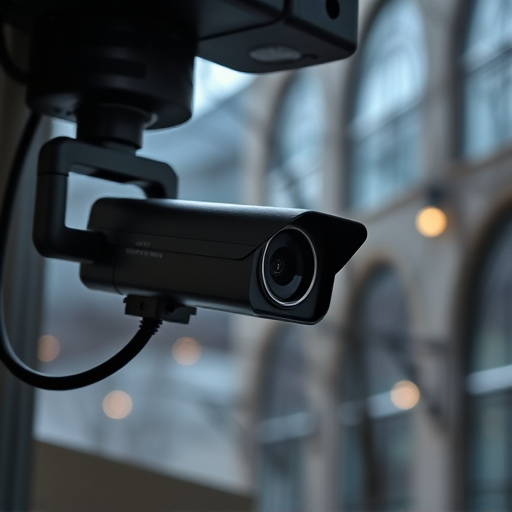In today's digital world, understanding Laws Regarding Secret Nanny Cameras is vital to protect privacy rights. Professionals specializing in counter-surveillance must adhere to stringent regulations, obtain explicit consent, and notify all parties before using tools like thermal imaging cameras and RF detection to identify hidden threats. Effective operations require meticulous legal and ethical approaches, including thorough assessments, documentation, and staying updated on legal developments, while respecting privacy and maintaining detailed records to avoid severe consequences.
In today’s digital age, privacy concerns have reached a boiling point. As surveillance technologies advance, so does the need for professional counter-surveillance methods to protect individuals and organizations from unwanted intrusion. This comprehensive guide explores the art of countering surveillance sweeps, focusing on legal boundaries, essential tools, step-by-step operations, and ethical considerations. Understanding and adhering to laws regarding secret nanny cameras and privacy is paramount for professionals in this field, ensuring a delicate balance between security and respect for personal freedom.
- Understanding Legal Boundaries: Privacy Laws and Their Relevance in Surveillance
- Essential Tools and Techniques for a Counter Surveillance Sweep
- Step-by-Step Guide: Conducting an Effective Counter Surveillance Operation
- Best Practices and Ethical Considerations for Professional Counter Surveillance Experts
Understanding Legal Boundaries: Privacy Laws and Their Relevance in Surveillance
In today’s digital era, understanding the legal boundaries surrounding surveillance is more crucial than ever. The use of secret nanny cameras, or any form of hidden recording devices, is governed by a web of privacy laws designed to protect individuals from unwarranted intrusion into their personal spaces. These laws vary significantly across jurisdictions, but they all share a common goal: preserving the right to privacy. Professionals specializing in counter-surveillance sweeps must be intimately familiar with these legal frameworks, ensuring that their methods adhere strictly to the law.
When discussing Laws Regarding Secret Nanny Cameras, it’s essential to recognize that installing such devices without consent can have severe legal consequences. For instance, many regions have strict rules against surreptitious recording in private residences or places where individuals reasonably expect privacy, like bathrooms or bedrooms. Violating these laws not only exposes the installer to civil lawsuits but also potential criminal charges. Professionals in this field must be vigilant about obtaining proper authorization and notifying all parties involved before conducting any surveillance activities.
Essential Tools and Techniques for a Counter Surveillance Sweep
In conducting a comprehensive counter surveillance sweep, professionals rely on a combination of advanced tools and techniques to counteract hidden threats. One of the primary essential tools is thermal imaging cameras that can detect heat signatures, revealing invisible activities or devices like secret nanny cameras often disguised as everyday objects. Additionally, long-range audio detectors capable of picking up faint sounds from a distance are crucial for identifying potential covert listening devices.
The Laws Regarding Secret Nanny Cameras vary across jurisdictions but generally require explicit consent for surveillance. Professionals conducting counter surveillance sweeps must be adept at navigating these legalities while employing techniques such as radio frequency (RF) detection to identify wireless devices that could be part of a spying apparatus. Manual inspections, using specialized tools like magnifiers and fiber optic examiners, complement these technological advancements in identifying subtle modifications that may indicate the presence of hidden cameras or listening devices.
Step-by-Step Guide: Conducting an Effective Counter Surveillance Operation
Step-by-Step Guide: Conducting an Effective Counter Surveillance Operation
Before initiating any counter surveillance sweep, it’s crucial to familiarize yourself with the laws regarding secret nanny cameras and other hidden recording devices in your jurisdiction. Transparency and legality are paramount to ensure the integrity of your operation. Obtain necessary permits and inform all parties involved—especially employees or residents—about the impending sweep to maintain ethical standards.
The process begins with a thorough assessment of potential surveillance points, focusing on common areas where unauthorized cameras might be hidden. This includes careful inspection of ceilings, walls, doorframes, and even everyday objects that could serve as cover. Utilizing specialized equipment like thermal imaging cameras, metal detectors, and radio frequency (RF) signal detectors, conduct a systematic search to identify and neutralize any active surveillance devices. Document each step meticulously, noting the location, type, and eventual disposal of all found devices.
Best Practices and Ethical Considerations for Professional Counter Surveillance Experts
In the field of counter surveillance, professionals must adhere to stringent ethical standards and stay apprised of evolving legal landscapes. One key consideration is respecting privacy rights while conducting thorough sweeps. Unlawful installation or use of secret nanny cameras violates Laws Regarding Secret Nanny Cameras, carrying severe legal repercussions. Professionals should always obtain explicit consent from clients or relevant authorities before commencing any surveillance activity.
Additionally, transparency and documentation are vital. Experts must maintain detailed records of their methods, findings, and the basis for any recommendations. This not only ensures accountability but also helps in justifying the legality and ethical soundness of their practices. Upholding these best practices fosters public trust and strengthens the integrity of counter surveillance services.
In light of evolving privacy laws, such as those regarding secret nanny cameras, professionals in counter surveillance must stay informed and uphold ethical standards. By combining legal knowledge with advanced tools and techniques, as outlined in this guide, experts can conduct effective operations while respecting individual privacy. Adhering to best practices ensures the integrity of their work and fosters trust among clients who rely on discreet and legal counter surveillance services.
